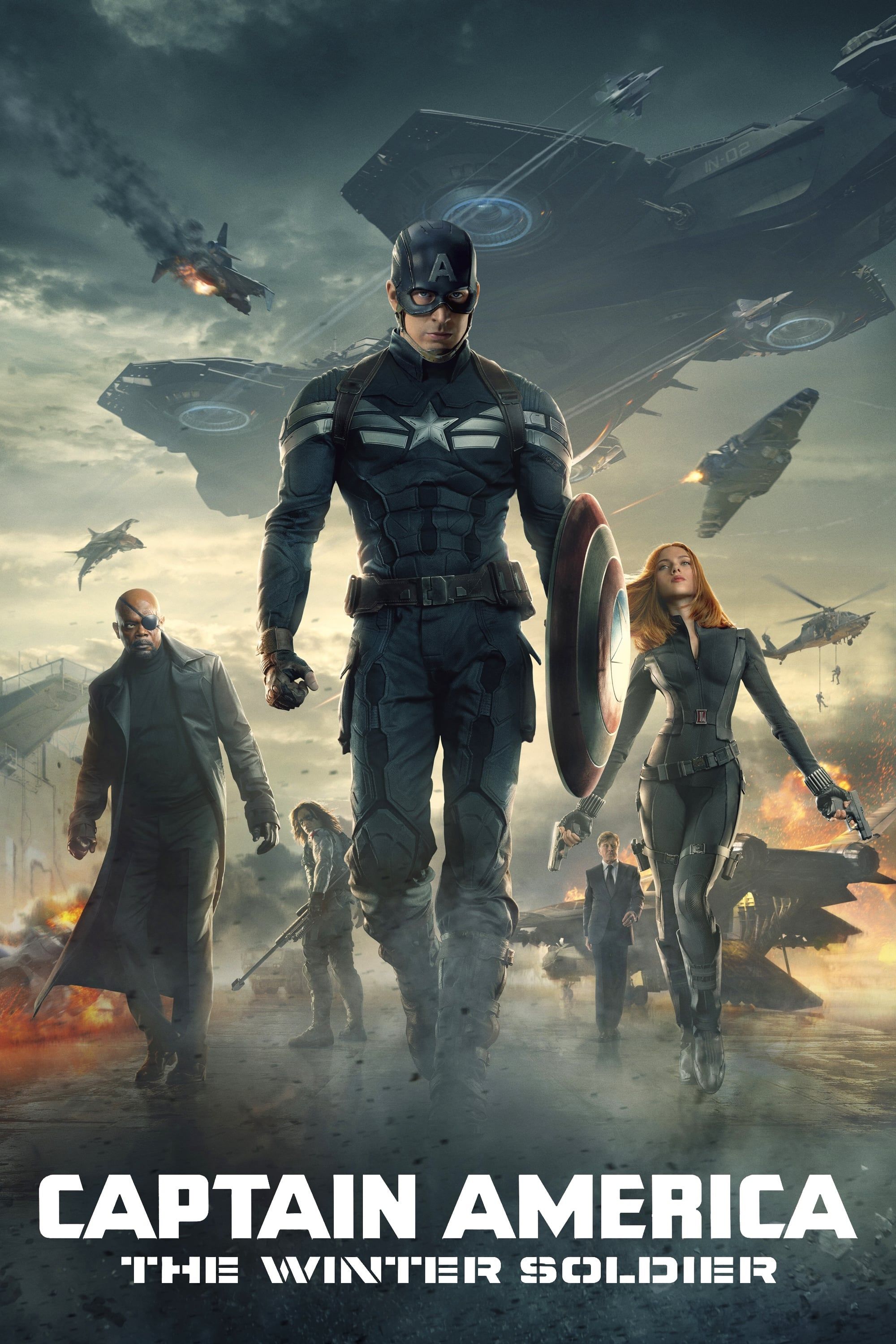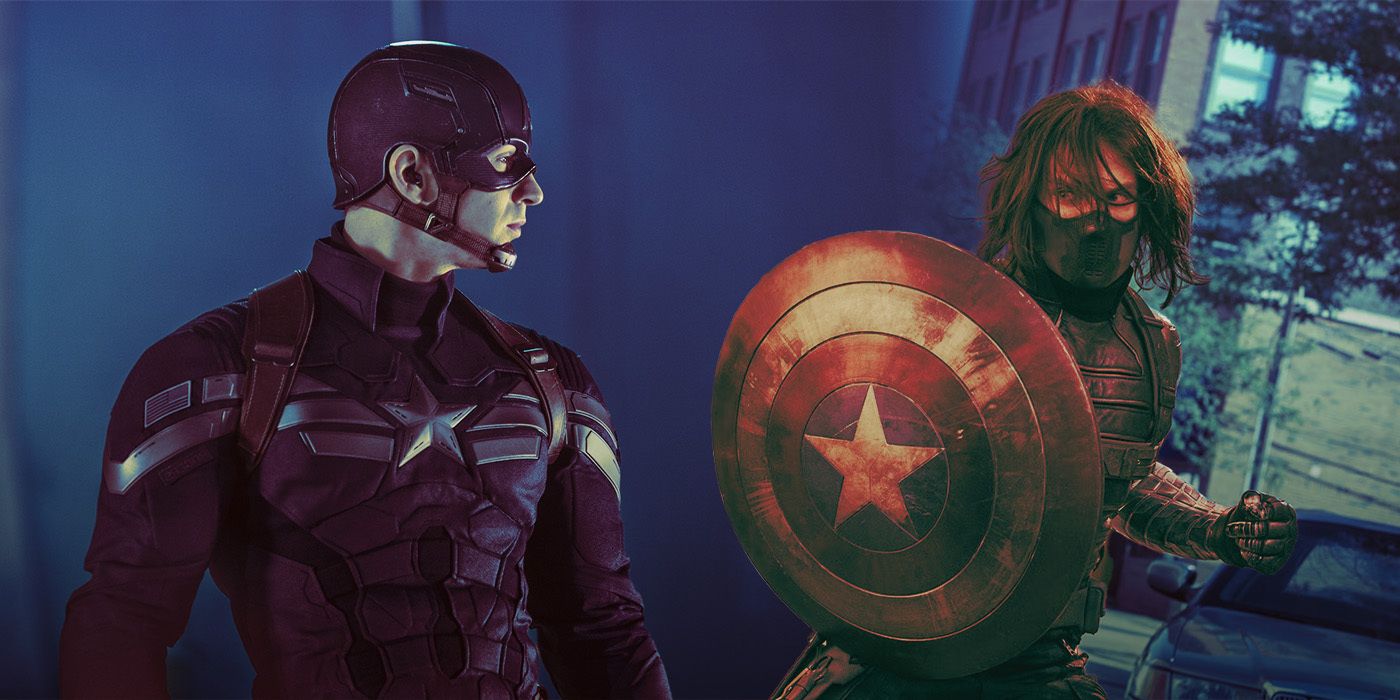For 16 years now, the Marvel Cinematic Universe has sat atop the major Hollywood franchise hierarchy. The series, which now consists of 33 feature films and 12 seasons of original series on Disney+, has struggled a bit over the last couple of years.
Major films like The Marvels and Ant-Man and the Wasp: Quantumania failed to deliver at the box office, and the once bulletproof critical armor of the franchise has given way to derided and divisive films such as Eternals, Thor: Love and Thunder and the aforementioned Ant-Man and Captain Marvel sequels. However, the franchise is hoping to get a bit of a reset by taking a break in 2024 – only releasing one feature, Deadpool & Wolverine – before returning with a handful of major film releases in 2025.

Captain America: The Winter Soldier
- Release Date
- March 20, 2014
- Director
- Anthony Russo , Joss Whedon
- Cast
- Chris Evans , Samuel L. Jackson , Scarlett Johansson , Robert Redford , Sebastian Stan , Anthony Mackie
- Runtime
- 128
- Main Genre
- Superhero
As the MCU is in arguably the rockiest state it has been in since it kicked off with Iron Man in 2008, we wanted to take a moment to revisit the franchise when it was really starting to find its stride. 10 years ago this month, the ninth film in the MCU was released; that film was Captain America: The Winter Soldier. These days, the second Captain America film is frequently lauded as one of the best films ever produced as a part of the MCU.
Looking back on it a decade down the line, The Winter Soldier stands tall as an incredible example of the MCU’s ability to embrace different genres and provide a story that is more than just a collection of action sequences loosely strung together with a paper-thin plot.
Proving the MCU Is More Than Comic-Book Nonsense
When Captain America: The Winter Soldier hit theaters, the MCU was just beginning to really define its existence as a franchise. It came midway through the second “Phase” of the series, which followed a handful of standalone films that culminated with 2012’s The Avengers in Phase One. With Iron Man 3 leading the charge in 2013, Phase Two started strong with the MCU’s second billion-dollar grosser, despite the mixed reaction from fans to the third Iron Man flick. Then came Thor: The Dark World later that year, which is still considered to be one of the worst films in the entire franchise.
So, the MCU still hadn’t really proven itself from a critical perspective yet after The Avengers, but the second Captain America film changed all of that. By taking an earnest, yet lighthearted, approach to Captain America’s life as a fish out of water in the modern world, The Winter Soldier was able to win audiences over with clever writing, strong creative choices and no small amount of heart.
Chris Evans gives a career-best performance in the role, while the strong supporting cast – consisting of Scarlett Johansson, Samuel L. Jackson, Robert Redford, Sebastian Stan and Anthony Mackie – all do exemplary work upholding the film’s tone and overall atmosphere.
While the MCU had flirted with different genres beyond the comic-book movie umbrella, such as fantasy in 2011’s Thor (directed by Kenneth Branagh), The Winter Soldier saw the franchise completely embracing a new genre. The film dove head-first into being more of a political thriller than it was a superhero spectacle.
With discussions of heavy topics, such as the risks of government surveillance, the treatment of veterans and how fascism can infect society down to its deepest roots, The Winter Soldier brought the MCU into uncharted waters. With perhaps the sole exception to 2008’s Iron Man, Captain America: The Winter Soldier felt like the first film in the MCU that aspired to be so much more than a comic-book movie; it wanted to be a genuinely great film that would challenge its audience just as much as it entertained.
The Winter Soldier’s Effect on the Infinity Saga
The success of The Winter Soldier had a dramatic effect on the future of the MCU. With audiences embracing its more mature, thought-provoking and meaningful storytelling, it paved the way for future Marvel films to go down the same road. While this may not have always produced great results, as was the case with 2021’s Eternals, it did also allow the creative space for a movie like 2018’s Black Panther to become the cultural sensation and Best Picture-nominated film that it became.
The most direct way that The Winter Soldier affected the future of the MCU was through the continued involvement of its core creative team. The film was written by Christopher Markus and Stephen McFeely, who had already worked on the first Captain America film as well as Thor: The Dark World, though they began working exclusively within the MCU for the five years immediately after The Winter Soldier. Catapulted by the success of the second Captain America film, they went on to write 2016’s Captain America: Civil War, 2018’s Avengers: Infinity War and 2019’s Avengers: Endgame.
The same is true of the film's directors, brothers Anthony and Joe Russo. The duo was picked to direct The Winter Soldier despite their relative obscurity prior. Before joining the MCU, the Russo brothers were best known for their work directing films like the 2006 comedy You, Me and Dupree and episodes of sitcoms like Arrested Development and Community.
After their incredible work on The Winter Soldier, they continued that success through Captain America: Civil War, Avengers: Infinity War and Avengers: Endgame. The Russo Brothers became the most crucial directorial force within the MCU. Their films became the beating heart of the Infinity Saga, and they elevated the franchise to a level it has rarely returned to since.
Will the MCU Ever Reach These Heights Again?
With the success of Captain America: The Winter Soldier, the MCU suddenly had set a new bar for how great it could be, which then meant that audiences began expecting better stories from the franchise. At first, this wasn’t a big issue, as the MCU went on a pretty hot streak (for the most part) for the next several years.
With films like Guardians of the Galaxy, Captain America: Civil War, Spider-Man: Homecoming, Thor: Ragnarok, Black Panther and the two-part Avengers: Infinity War and Endgame, the MCU clearly proved that it was capable of producing movies as great (or nearly as great) as The Winter Soldier.
However, it’s been a while since the MCU was this consistent. Over the last few years, the franchise has fallen off pretty substantially. Some say that Marvel Studio’s focus was too broad and sporadic after the success of Avengers: Endgame, some point to Disney’s desire for more content leading to a quantity over quality mindset at Marvel, while others attribute the decline of the MCU to “superhero fatigue.” Whatever the answer may be, and it’s likely some mix of these three factors and more, many of the remaining MCU fans seem to have lost hope that the franchise will ever return to the heights of a decade ago.
While things may seem bleak, the upcoming Marvel slate is cause for a bit of optimism at least. With films like Deadpool & Wolverine, Captain America: Brave New World (the first Cap film starring Anthony Mackie’s Sam Wilson), The Fantastic Four, Blade and a Shang-Chi sequel on the horizon, fans have their fingers crossed that the series will finally be able to deliver the same level of quality as it once did.
However, even if the MCU could deliver a film as great as The Winter Soldier today, there’s no certainty that it would perform as well, as the damage to the brand over the past few years may be irreversible. Thankfully, nothing the MCU does can undo the greatness of its past, so fans can continue to watch, re-watch and love The Winter Soldier for many years to come.

